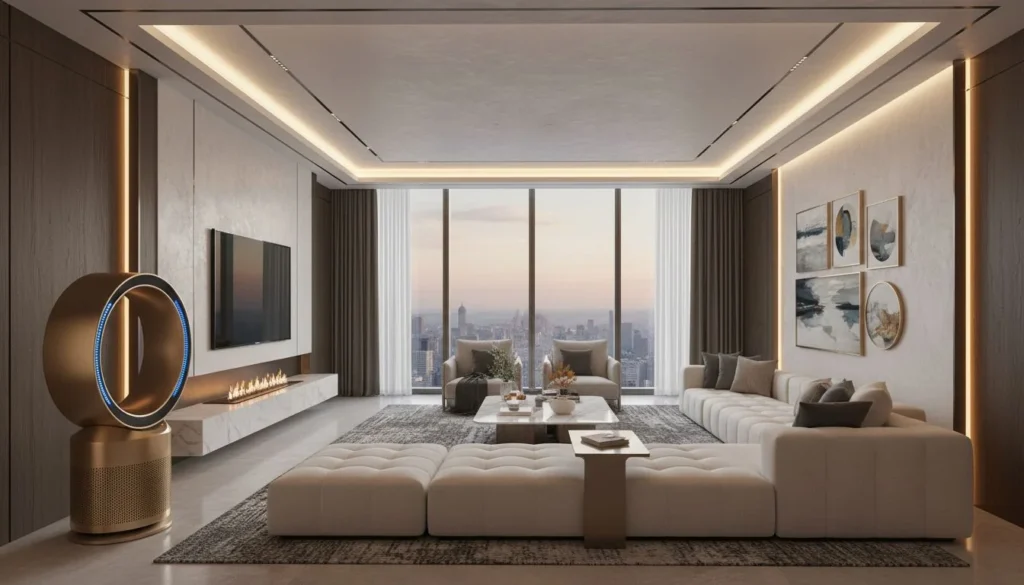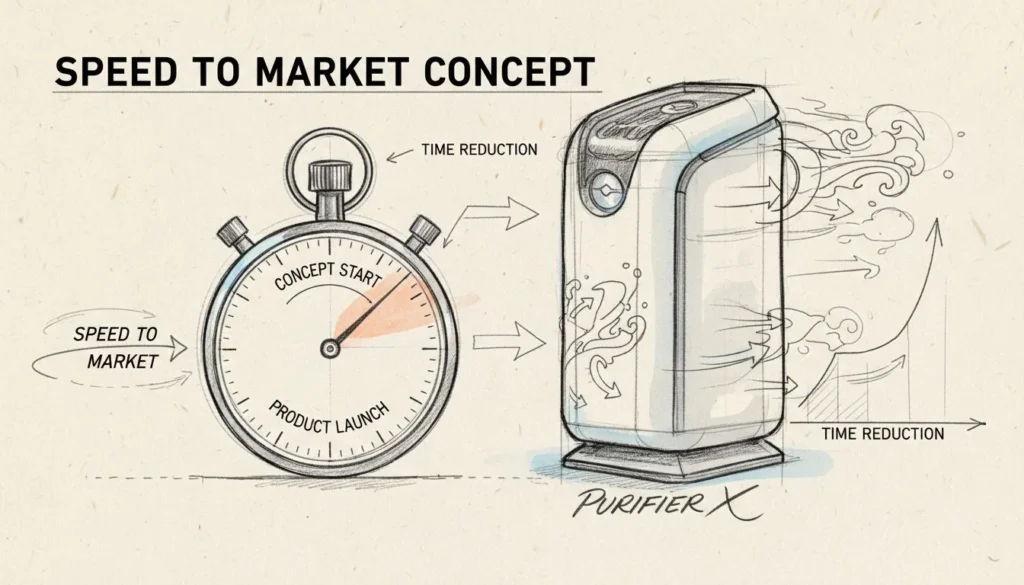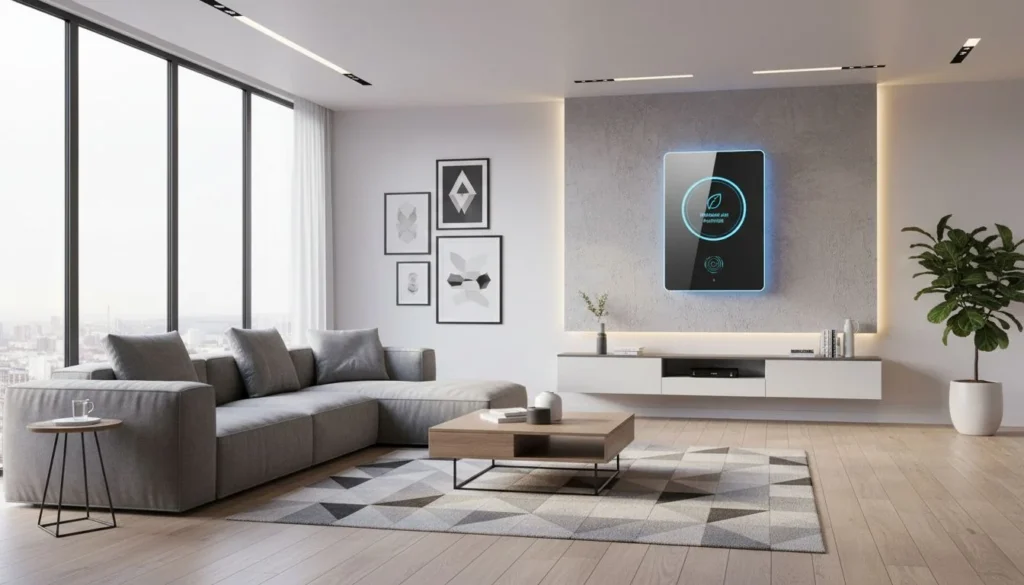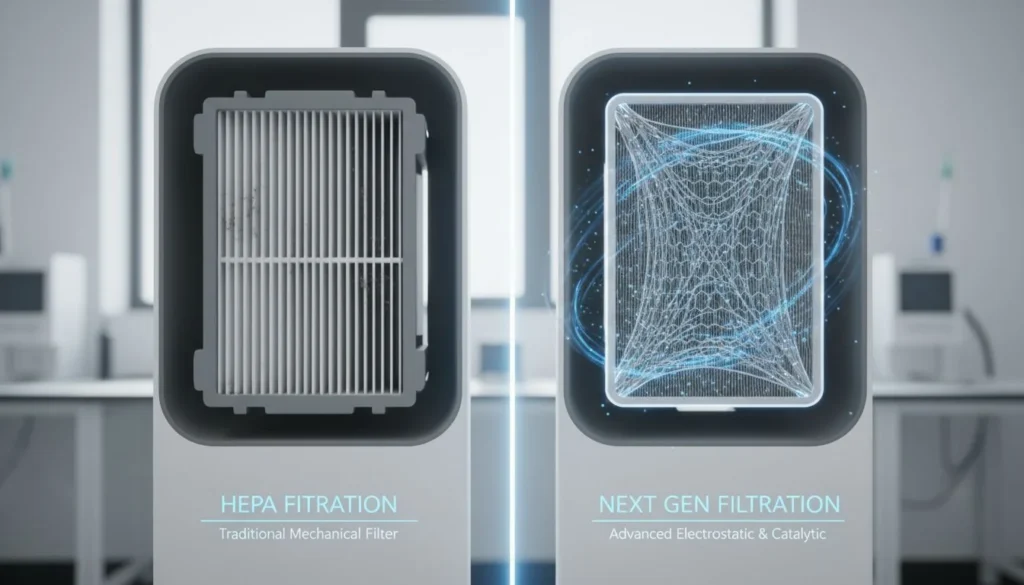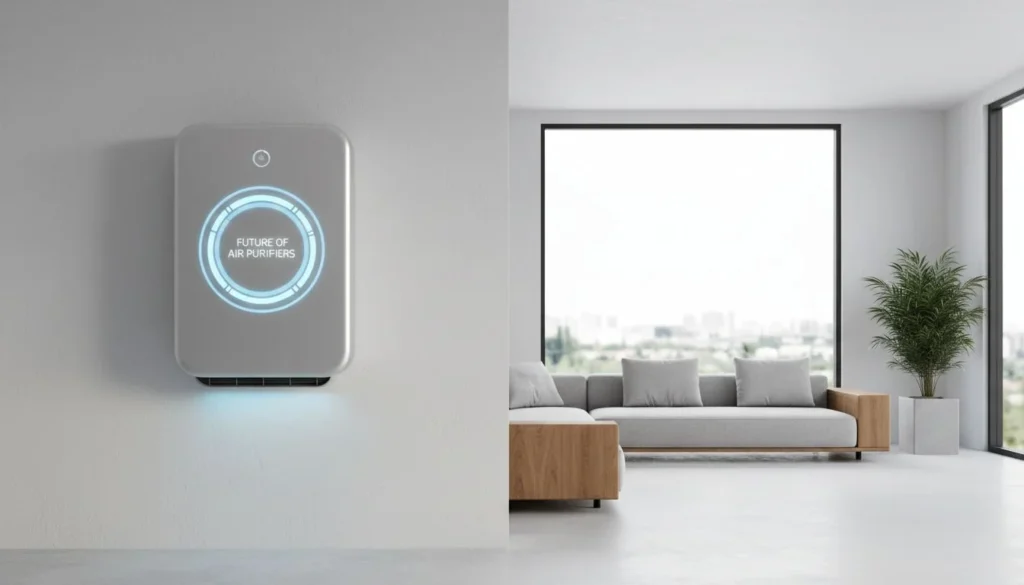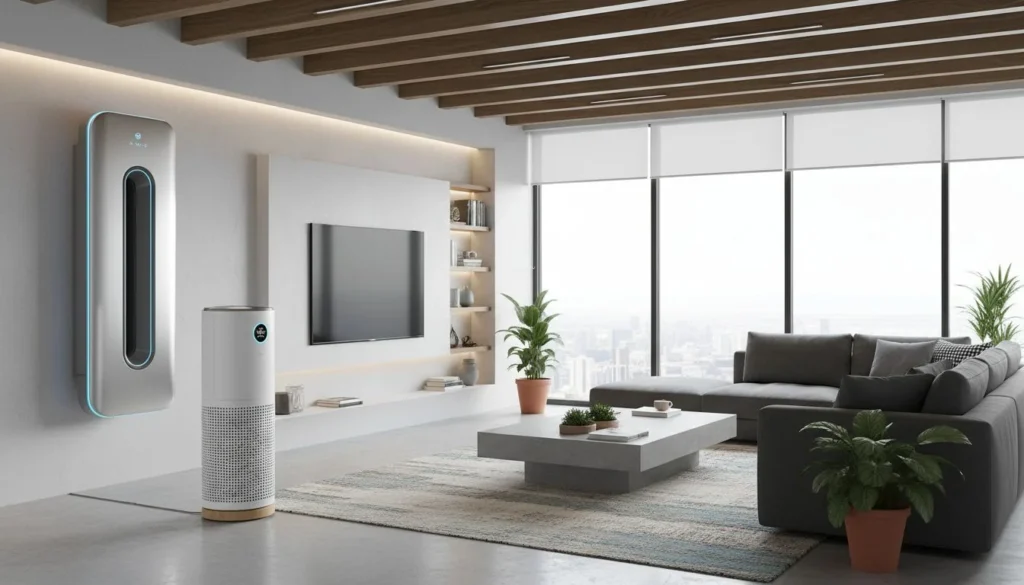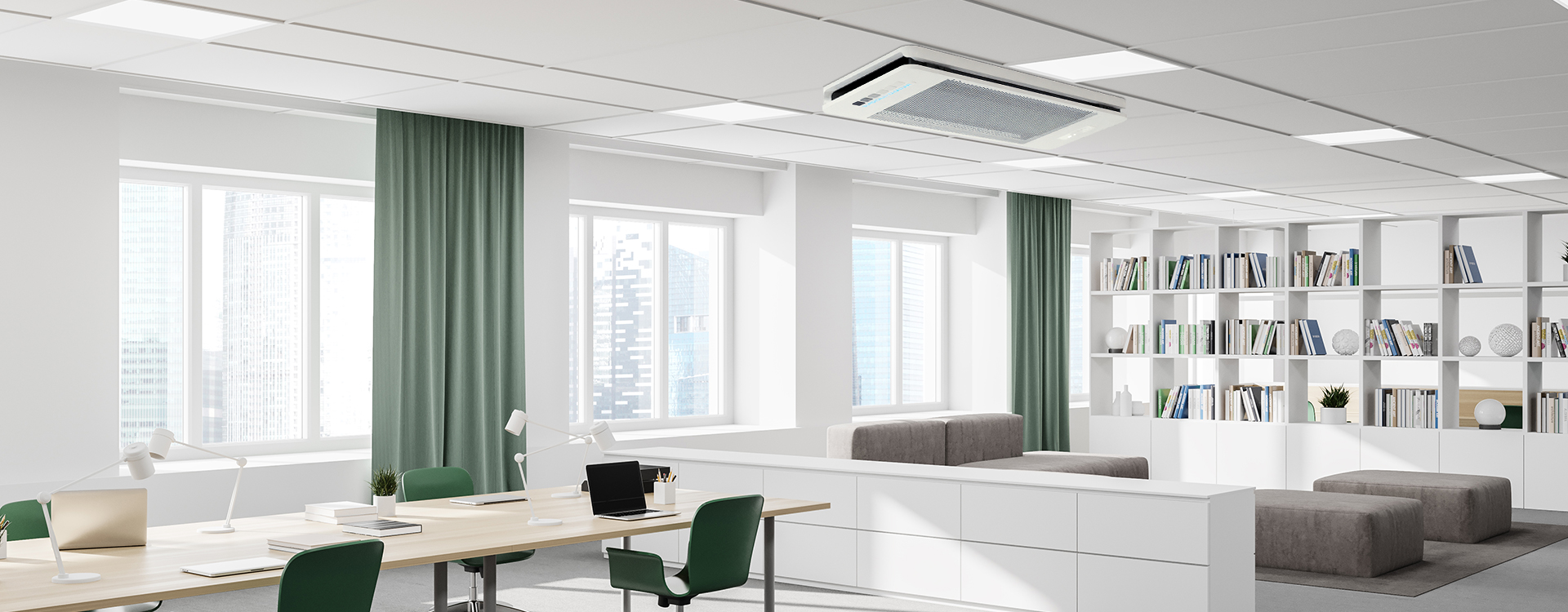
広々とした明るいオフィスには、空気の質を高めるためにヒソエアの天井埋め込み型空気清浄機が設置されている。
はじめに
HEPAフィルターは、空気中の浮遊粒子を捕捉し、様々な環境における空気の質を改善する、空気浄化における一般的な選択肢です。しかし、HEPAフィルターがこれほど効果的な理由は何なのでしょうか?また、あらゆるタイプの空気浄化のニーズに対応する最良の選択肢なのでしょうか?
大気汚染は屋外だけの問題ではなく、室内の空気の質も私たちの健康に大きく影響します。HEPAフィルターは、ホコリ、アレルゲン、バクテリア、ウイルスなどの粒子を捕獲する効率が実証されているため、空気清浄機には欠かせないものとなっています。HEPAフィルターは、清潔な室内環境を維持する信頼性と有効性から、家庭、学校、病院、オフィスなどで広く使用されています。
HEPAフィルターは、High-Efficiency Particulate Airフィルターの略で、0.3ミクロンの粒子を99.97%捕集することで知られており、ほこり、花粉、ペットのふけ、さらにはバクテリアやウイルスを捕集することで、よりクリーンな空気を提供します。その高い効率性により、住宅と商業施設の両方で信頼されるソリューションとなり、最も必要とされる場所で本質的な空気品質の改善を提供します。
HEPAフィルターは、0.3ミクロンの微粒子を99.97%捕集し、様々な環境で高い効果を発揮します。真
HEPAフィルターはその効率の高さから、一般家庭、学校、病院、オフィスなどで空気の質を改善するためによく使用されている。
HEPAフィルター空気清浄機があなたの空間に最適かどうか迷っているなら、HEPAフィルターの仕組み、他のろ過技術との比較、さまざまな環境にもたらす独自のメリットについて詳しく見てみましょう。
HEPAフィルターとは?
HEPA(高効率粒子状空気) フィルターは、0.3ミクロンの粒子を99.97%捕捉するように設計されています。 HEPA濾過効率1ホコリ、花粉、ペットのフケ、特定のバクテリアやウィルスを含みます。このレベルのろ過は、家庭、病院、オフィスなど、高い空気品質基準が求められる環境に最適です。
HEPAフィルターがクリーンな空気に効果的な理由
HEPAフィルターは、微小な粒子を捕捉することに優れているため、より清潔で健康的な室内環境を実現します。HEPAフィルターは、一般的な室内アレルゲンや汚染物質を低減するため、アレルギーや呼吸器過敏症の方には特に有益です。
HEPAフィルターはどのように空気中の汚染物質を捕集するのか?
HEPAフィルターは、インターセプション、インパクション、ディフュージョンなど、さまざまなろ過メカニズムによって粒子を捕捉する繊維の緻密なネットワークで構成されています。空気がフィルターを通過する際、これらの繊維が大きな粒子と小さな粒子の両方を捕捉し、高レベルの空気清浄度と品質を保証します。
はい、HEPAフィルターは医療施設に適しています。真
HEPAフィルターは、その高い効率性から、医療現場において汚染物質のない空気を確保するためによく使用される。
なぜHEPAフィルターは空気清浄機に有効なのか?
HEPAフィルターが非常に効果的なのは、そのユニークな設計により、幅広い種類の空気中の粒子を捕捉することができるからです。医療施設のような繊細な環境では、この効率は安全で清潔な空気の質を維持するために極めて重要です。
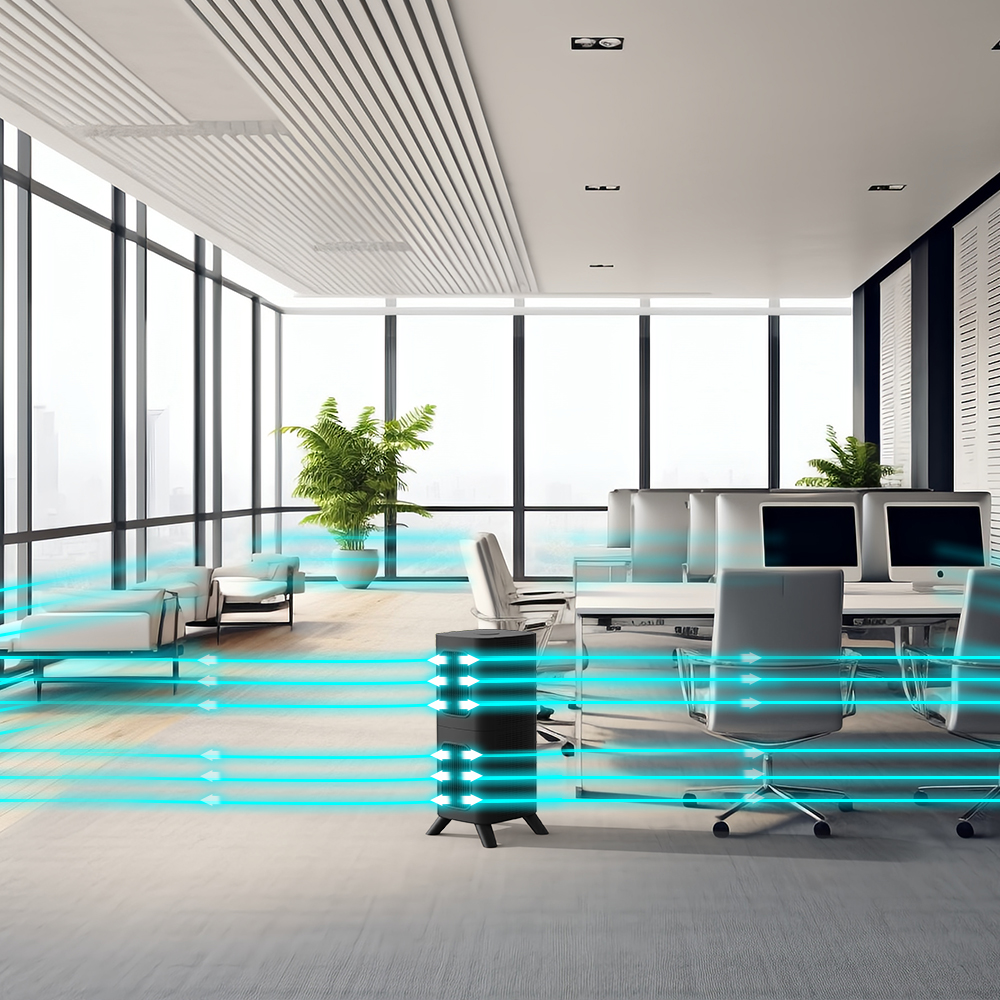
オフィスルームに設置されたHEPAフィルター付き空気清浄機ユニット
HEPAフィルターの機能を理解する
HEPAフィルターは、従来のフィルターよりも有害な粒子をより効果的に捕捉する、目の細かいメッシュに空気を通過させることで作動します。 HEPAフィルターの医療用途2.これらのフィルターは、空気清浄機内で継続的に働き、使用されるどの空間でも高レベルの空気清浄度を維持する。
HEPAフィルターの特徴は?
HEPAフィルターは、0.3ミクロンの粒子を捕獲することができる構造で、アレルゲン、ほこり、病原体など、一般的な室内汚染物質に対して非常に効果的です。この技術は、汚染物質のレベルを低く維持することが重要な環境では不可欠です。
HEPAフィルターと他のろ過技術との比較?
HEPAフィルターは、イオン発生器、プラズマフィルター、紫外線などの他の空気浄化技術と比較してどうでしょうか?それぞれの技術には長所と短所がありますが、HEPAフィルターは人の健康にとってより安全で信頼できる選択肢として際立っています。
HEPAフィルターとその他のフィルターの主な違い
副産物としてオゾンを発生させる可能性のあるイオン化技術やプラズマ技術とは異なり、HEPAフィルターは有害な排出物を放出することなく粒子を捕捉するため、室内空気質の改善には好ましい選択肢となる。
HEPAフィルターは連続使用の方が安全か?
イオン化およびプラズマ技術は、イオンまたは反応性粒子を放出することで機能する。 電離濾過のリスク3.HEPAフィルターは、粒子を物理的に捕捉することでこの問題を回避し、家庭、学校、職場で継続的に使用するための安全な選択肢となっている。
HEPAフィルターは、VOCのようなガスを捕捉することができる。偽
HEPAフィルターは、ガスや臭気ではなく粒子を捕獲するように設計されています。VOCには活性炭フィルターが必要です。
ろ過技術の比較
ここでは、さまざまなろ過技術を簡単に比較し、それぞれの長所と最適な用途を紹介する:
| 濾過技術 | 効率性 | 副産物 | 一般的なアプリケーション | 主なメリット | 制限事項 |
|---|---|---|---|---|---|
| HEPAフィルター | 高い | なし | 家、病院、 | 99.97%の粒子を除去 | VOCなどのガスは除去しない4 |
| 事業所 | 0.3ミクロンまで | ||||
| 活性炭 | 中程度 | なし | 空気清浄機、HVAC | VOC、臭気を吸着 | 微粒子に対する効果は低い |
| イオン発生器 | 中程度 | オゾン | 産業用だ、 | アレルゲンと粒子を低減 | オゾンは呼吸器系を刺激する可能性がある |
| 空気清浄機 | |||||
| UV-Cライト | 可変 | なし | 病院、研究所 | バクテリアやウイルスを破壊する | 粒子に対する効果は限定的 |
| 空気清浄機 | |||||
| プラズマ技術 | 高い | オゾン | インダストリアル | 殺菌に有効 | 反応性粒子を生成 |
HEPAフィルターの理想的な用途
HEPAフィルターは適応性が高く、家庭、オフィス、医療施設など様々な環境で使用できる。特にアレルゲンや病原体の低減に効果的で、より健康的な室内環境を作り出します。
HEPAフィルターから最も恩恵を受けるのは誰か?
HEPAフィルターは、医療施設、学校、アレルギーに敏感な人のいる家庭など、高い空気清浄度が不可欠な環境で最も効果を発揮します。
HEPA技術の詳細用途
微粒子を捕捉することで、HEPAフィルターはアレルゲンや病原体を低減し、家庭、オフィス、病院に理想的です。最も必要とされる場所で、信頼性の高い空気清浄ソリューションを提供します。
HEPAは何の略ですか?
HEPA、または 高効率粒子状空気これは、0.3ミクロンまでの粒子を99.97%除去することを義務付ける標準ろ過レベルで、より健康的な室内環境に貢献します。 HEPAおよびVOCろ過4.
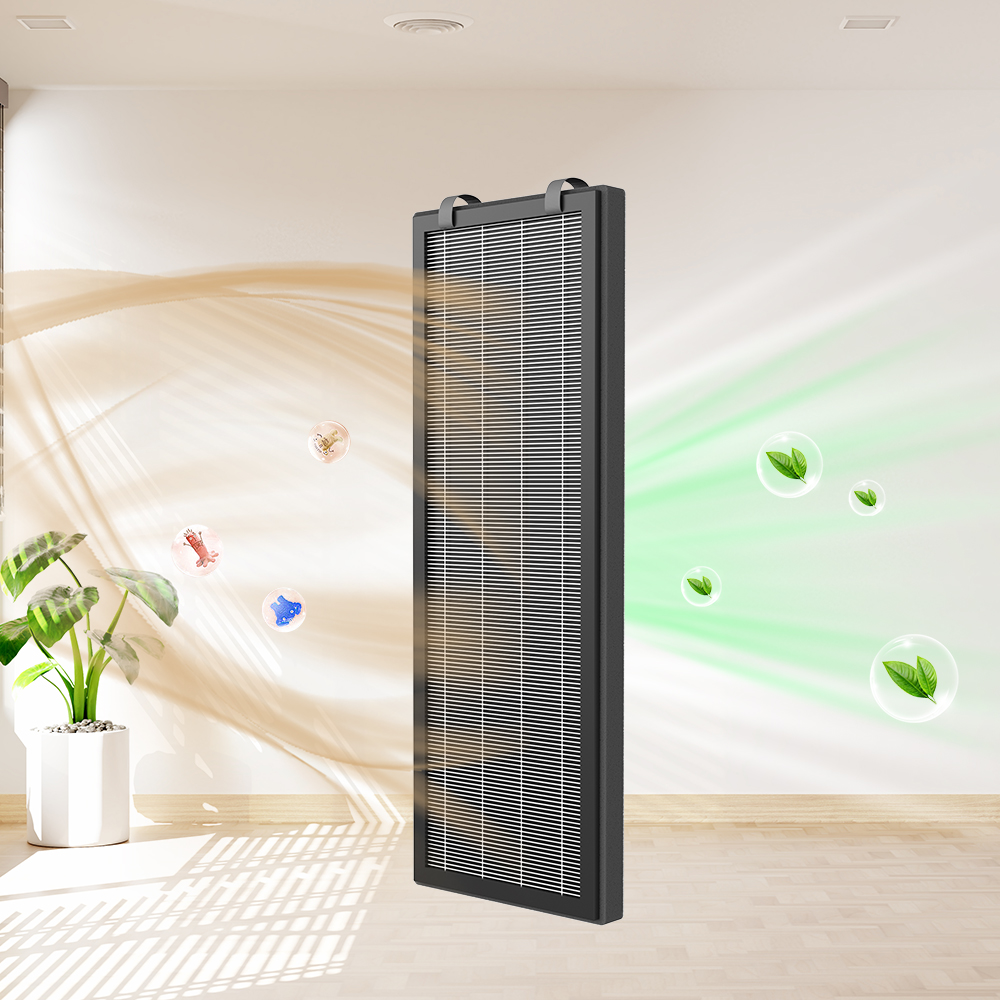
HisoAir HEPAフィルター 空気清浄機 交換用
HEPA技術の起源と進歩
第二次世界大戦中、放射性微粒子をろ過するために米軍によって開発されたHEPA技術は、商業用および家庭用の空気浄化において重要なコンポーネントへと進化しました。今日のHEPAフィルターは、抵抗を減らしてエアフローを改善しています。
HEPAフィルターの歴史的発展
もともとは軍事用に設計されたHEPAフィルターは、その後、家庭や職場など現代の環境における高効率ろ過のニーズに適合するようになった。
HEPA技術における最新の進歩
最新のHEPAフィルターには、大風量と低抵抗を可能にする高度なメディアが組み込まれており、現在使用されている空気清浄機では、より静かで効率的なものとなっている。
なぜHEPAフィルターにカーボンフィルターが必要なのか?
HEPAフィルターは粒子を捕捉する能力は優れていますが、ガスや臭いを除去することはできません。活性炭フィルターは、揮発性有機化合物(VOC)や不快な臭いを吸着し、HEPAフィルターを補完します。
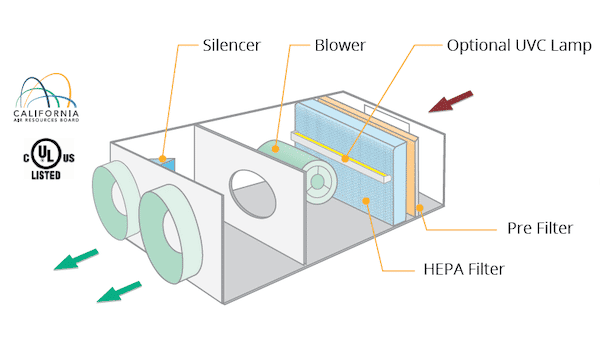
フィルター式空気清浄機の斜視図
デュアルフィルターによる包括的なろ過
HEPAと活性炭フィルターを組み合わせることで、粒子とガスの両方を除去し、総合的な空気浄化を実現します。この二重のアプローチは、VOCが懸念される環境で特に効果的です。
HEPAフィルターとカーボンフィルターの両方を使用するメリット
粒子とガス状汚染物質の両方が存在する空間では、HEPAフィルターとカーボンフィルターを組み合わせることで、より広範な汚染物質に対応する完全な空気浄化ソリューションが実現します。
空気清浄機におけるHEPAフィルターの利点
HEPAフィルターは、長期的な空気品質改善のための非常に効果的でメンテナンスの少ないオプションです。汚染物質を減少させ、あらゆる室内環境で空気の質を向上させます。

リビングルームの清浄機
HEPAフィルターが家庭や職場に最適な理由
HEPAフィルターは、アレルゲン、ホコリ、ペットのフケを低減し、室内にクリーンで健康的な空気を提供します。メンテナンスの必要が少ないため、長期使用にも便利です。
長寿命で効率的
HEPAフィルターは、使用状況にもよりますが、6~12ヶ月ごとに交換するだけです。その耐久性と効率性により、持続的な空気品質管理のための費用対効果の高い選択肢となっています。
結論
HEPAフィルターは、微粒子を捕獲することで室内空気の質を改善し、より清潔で健康的な環境を実現する実証済みのソリューションです。当初は軍によって開発されたHEPAフィルターは、その安全性、信頼性、継続的な進歩により、家庭、職場、医療施設など、あらゆる場所で空気浄化のための好ましい選択肢であり続けています。


